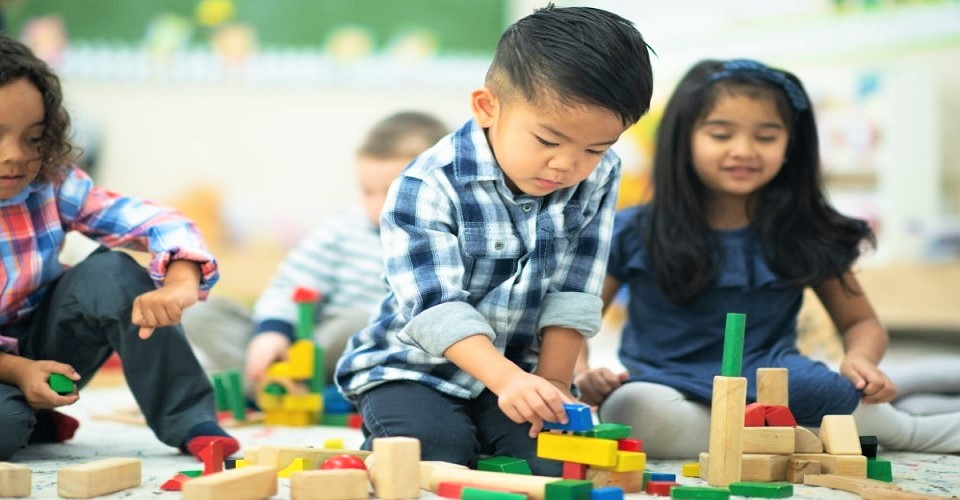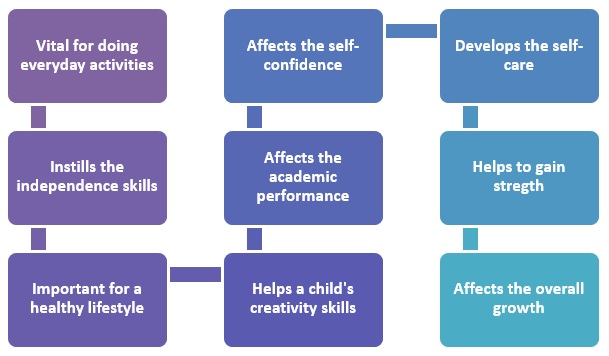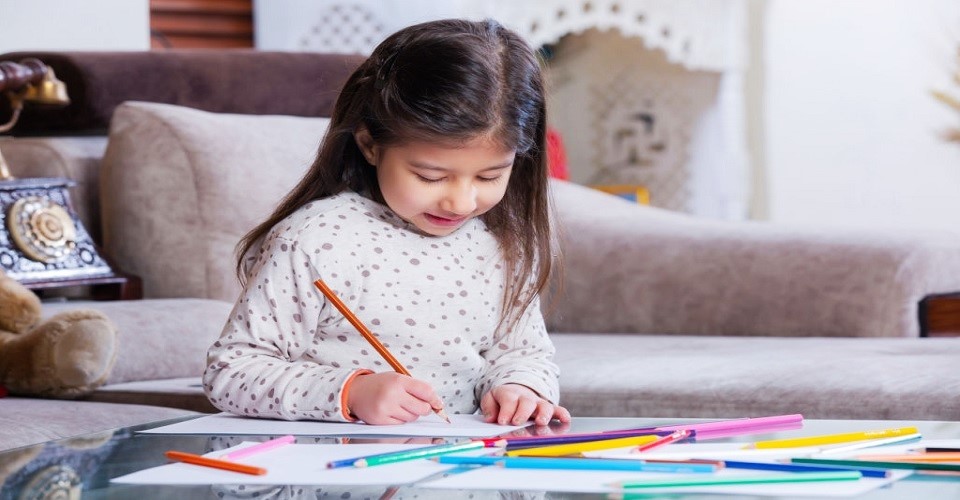20 Types of Fine Activities That Can Help Children to Develop Their Gross and Good Motor Skills
27th October 2020

In order to develop a child’s growth completely, it is crucial to boost fine motor skills too! Well, there are so many things we do on a daily basis that need fine motor skills but we forget how vital they are. Fine Motor Skills are one of the main concerns in the Pre-K classroom as they are the base that children need before they acquire handwriting and to gain control of a writing tool.
As we have grown our interests in these fine motor activities, what can we do?
According to Understood.org: “We use fine motor skills to make small movements. These movements come so naturally to most people that we usually don’t think about them. Fine motor skills are complex. However, they involve the coordinated efforts of the brain and muscles, and are built on the gross motor skills that allow us to make bigger movements."
Well, the fine motor skills include the different kinds of use of small muscles in our hands, wrists, fingers, feet as well as toes. It also involves the actions of small muscles that need a child's brain to synchronize between the action and what they are sighted. This can also influence small things like holding a spoon to eat or using a pencil to write, etc. Fine motor skills start to grow when a child practices the minor muscles in their hands, wrists, fingers, feet and toes and it includes actions like grasping, holding, or gripping to hold something between the fore-finger and thumb.
Significance of the Fine Motor Skills
Fine motor skills are important for doing everyday activities. With the improvement of motor skills, a child will be able to finish daily significant tasks - writing, eating, buttoning, zippering, and so on.

Well, doing all the age applicable everyday jobs in the kitchen can also be a great way to help build fine motor skills. As adults, we use different kinds of fine motor skills so often in our daily lives that it’s easy for us to overlook, but a child has to learn all these skills.
Some More Examples of Fine Motor Assistance and Activities
Some small movements contain fine motor skills:
- Holding a pencil/pen
- Getting dressed with buttons, and zippers
- Using spoons while eating
- Using the technology/mouse handling
- Holding the small items
- Turning pages
- Cutting with scissors
These skills can be achieved when kids learn to use their smaller muscles. Without learning the asset in fine motor skills, a child can undergo difficulties while moving forward as these skills are needed in everyday tasks. The gross motor skills include the complete control of the arms, legs, and head.
“Don’t assume that a kid will be able to draw straight lines, can hold the pencil properly when the kid is just two years old.”
However, if you observe that kid is lacking in their fine motor ability, there are a lot of creative ways to help develop the motor skills.
Here are some simple yet appealing suggestions that certainly promote fine motor through activities for toddlers.
1. Some specific activities that help in developing the gross motor skills include running at different speeds, jumping ropes, playing, catching balls of dissimilar sizes, climbing in various different directions, pedaling with riding toys, pushing toy strollers or brooms, filling and emptying buckets and so on. These can help kids to practice in large movements of their arms and legs.
2. Different kinds of Pom Poms in general are one of the fantastic materials to work on hand-eye coordination. This includes requiring small actions to hold them, pick them up, and move them.
3. Include different sizes of buttons as they also work great in developing all types of fine motor skills. This includes picking them up by using those small muscles that take some amazing finger strength as well as hand-eye synchronization.
4. Include the different kinds of play activities with clay by using some plastic tools such as scissors or cookie cutters to practice into a number of shapes and sizes. You can also contain puzzles with variable size handles or knobs.

5. Encourage children to turn the pages of a book and remember, shared reading is also a good time to boost fine motor skills. Think of board books that are quite beneficial for very young children, since the pages are well-made plus easier to handle.
6. Do you know Rubber Bands also work on finger strength? Well, there are other materials that do the same though. Rubber Bands are a fantastic accumulation to any fine motor activity!
7. Well, being able to glide the clip in a piece of paper takes a lot of attentiveness for kids in preschool in addition to kindergarten. Therefore, we would suggest you to include Paper Clips as these are great for finger movements plus manipulation.
8. Let the child try to pull the stickers off the sticker sheet! Well, if it’s problematic, you can eliminate the non-sticker part of the piece. It’s still an amazing fine motor activity as stickers are wonderful!
9. Another tool that can help in developing the fine motor skills are Kitchen Tongs, as it can be a great tool for working on hand strength and control. By bringing them out during clean up time, the child will be working on his/her fine motor skills.
10. Encourage the child to draw and paint, this not only supports the fine motor skills, but also helps in fostering creativity and imagination as well. Include diverse types of painting like crayons, chalk, finger paints, brush painting or charcoal, to stimulate their interest and strengthen the child’s hand-eye synchronization.
11. Well, using cups to fill and pour out is not only fun, but this also encourages sensory development. Scoop and dig with spoons and use molds and here, using kinetic sand can be a great substitute.
12. Take the eyedropper test. Put some water in a few glasses and pour a few drops of food coloring in each glass. Now, have a couple of unfilled glasses where kids can use an eye dropper to tryout by mixing different colored water together.
13. Learning to brush teeth is good for a child's motor development even though it can be difficult to teach young children to brush their own teeth. However doing so will help their fine motor skill improvement.
14. Playing with sponges is another fun activity to develop fine motor skills. It’s a simple game that can make stronger hands and forearms.
15. Digging and gardening activities help to develop the fine motor skills and there are parts of it that need smaller muscle control, too. Like transferring seedlings into a garden.
16. Use larger nuts and bolts as children use their fingers, hands, and wrists for coordinating both hands while grasping and meandering the metal nuts onto the bolts.
17. Different kinds of interlock cubes that connect on different sides can make different things and children push the cubes with their hands to hook them together.
18. Well, connecting dots is a great way to grow fine motor skills for young children as they are short. Children draw lines with the markers to connect the dots on the paper.
19. Let children eat with their hands and fingers. Picking up food with fingers will help to develop knowledge regarding gripping which is an essential precursor to holding a crayon.
20. Children should be stimulated to pile blocks, use puzzles, play with pop beads, etc. However, children should not be left alone while playing with beads as they may swallow it.

Search for opportunities all over the day for your child to influence small items, maybe push and pull with her hands and fingers as well as practice small movements. Well, being aware of these prospects is the first step in helping a child to develop fine motor skills, which can be learned through the online early childhood education courses. When interruptions are noteworthy or obstructing a child’s aptitude to perform the age appropriate responsibilities, an assessment is necessary.
Issues with synchronization and balance may not be visible until kids reach school age, however, if you’re concerned about your child’s gross motor skills, then consult an expert.
Written By: Rimpa Ghosh